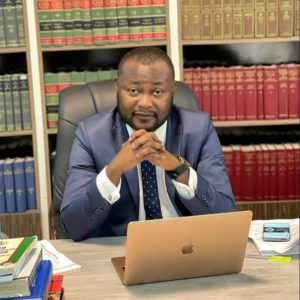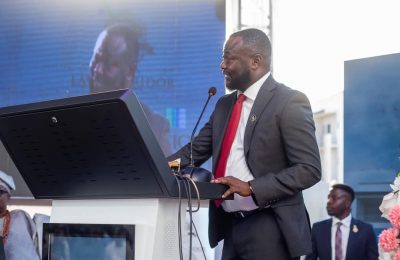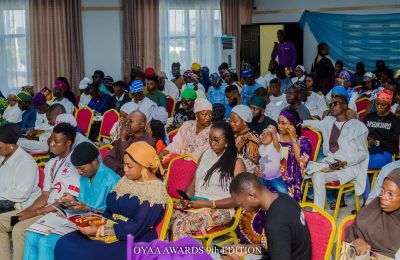


The proposed amendments of the National Press Council (NPC) and the National Broadcasting Commission (NBC) is a sponsored legislative misadventure to undermine press freedom, strangulate free speech and undermine reportage on true but embarrassing government actions and policies. It is a wicked improvement on the obnoxious Media Bill, National Broadcasting Code and the Twitter ban. It is, in fact, a draconian bill that shares parentage with the infamous Decree 4 and the colonial Public Order Bill all of which sought to undermine reportage on wrongful government activities at the cost of truth and justice.
I have taken the trouble to go through the proposed amendments and the following ugly heads stand out. Firstly, the bill seeks without pretence to vest control of the NPC and NBC in the President through his Minister of Information. The new proposal gives the President power to elect new Board Members, a Chairman and Executive Director for the Council only on the whimsical advise of his Information Minister, doing away with the provision to seek Senate approval in line with the principle of Checks and Balances that courses through our constitutional existence. This effectively gives the President and his Minister unfettered opportunity to tamper with Press Freedom and is in fact a legislative annexation of the Press as a subsidiary of the Ministry of Information. Secondly, the introduction of heavy jail terms and fines effectively criminalizes media practice in Nigeria.
Further, the proposed amendments seek to regulate social media- Twitter, Facebook, Instagram etc, and revoke media licenses, jail journalists and shrink the civic space all on the government’s whims and sense of embarrassment. It is a malicious and punitive bill seeking to empower the government to control narratives about its activities with little or no room for media advocacy. If it sees the light of day, we might as well repeal section 22 and 36 of the Constitution of the Federal Republic of Nigeria which respectively demands that the Press hold the government to account and which guarantees Freedom of Speech and Press.
At a time when governments around the world are consolidating on efforts to expand the frontiers of Press Freedom through frameworks that enhance the role of the media in a democracy, the Nigerian Executives and Legislators are hard at work to shrink the media space and impose their version of events on the masses. An independent press is a threat only to a corrupt political class and such proposed legislative encumbrances to Press Freedom will further undermine the little traction gained over the years in this sector of the country. It must be opposed.
It is impressive that media houses have decided to run the gauntlet in opposing these repressive legislative proposal currently at the public hearing stage at the National Assembly. A look at several national dailies today shows that these group of professionals are awake to the threat to their profession, the imposition on Free Press and its wider implication for the country. They understand that nations can be built or broken on the backs of narratives, and that the truth itself can be muddled into a lie and a lie into a truth if the watchmen in our civic and media spaces are successfully incapacitated by such draconian legislation. Opposition to the proposed amendments is, however, more than just the job of the media industry, it should be a national rally against legislative oppression.
When given a thought, it becomes apparent that it is not a coincidence that Mr. Lai Mohammed, the Information Minister, is one of the most notoriously visible cabinet member of this regime. This government’s fascination with controlling narratives is not without motive. A government whose actions speak for itself in terms of productivity, efficiency and reliability would have no pressing need to regulate the Media. What are they afraid of? Meanwhile, there are very many Nigerians who would have difficulty remembering the names of the Finance, Petroleum, Power, Works & Housing, Youths, Defence and Info-Tech Ministers of Nigeria, and yet, a serious country with a viable plan about the future would have such key Ministries prominently emphasised in its tenure-ship.
In reaching my conclusions above, I am not unaware of the threat that hate speech/fake stories and an unregulated media mean to a nation’s development. The argument is that a group of professionals guided by the law are best suited to self-regulate rather than the government itself who are more often than not subject to media scrutiny and criticism. There are abundant municipal laws which deal with media professionalism and which regulate social media such as the constitution and the Cyber Crimes Act. An unblemished administration of these set of laws will indeed serve the country’s purpose in protecting against hate speech and false narratives. There is absolutely no moral ground to vest the government with total control of the media, not in a democracy, and as such, the over-zealous sponsor of the NPC and NBC amendments must retract his tender. Where this fails, the National Assembly must discountenance such a proposal made in contempt of constitutionally guaranteed rights and thus save our fragile democracy.
Pelumi Olajengbesi, Esq. is a Legal Practitioner and the Principal Partner at LAW CORRIDOR PARTNERS, Abuja. Lawcorridor@gmail.com.
Reach the right people at the right time with Nationnewslead. Try and advertise any kind of your business to users online today.
Kindly contact us for your advert or publication @ Nationnewslead@gmail.com Call or Whatsapp: 08168544205, 07055577376







